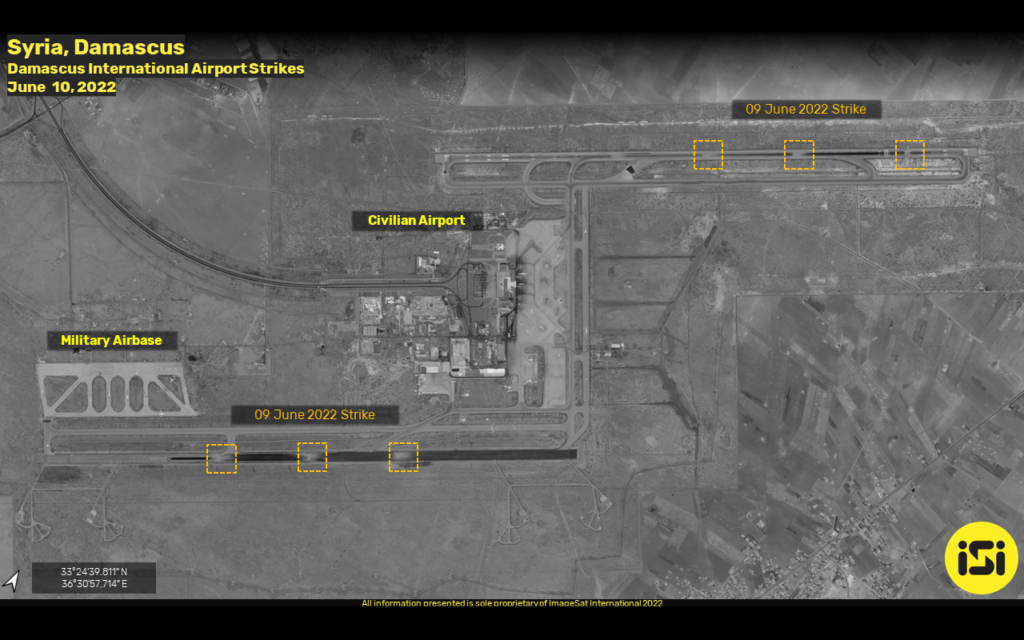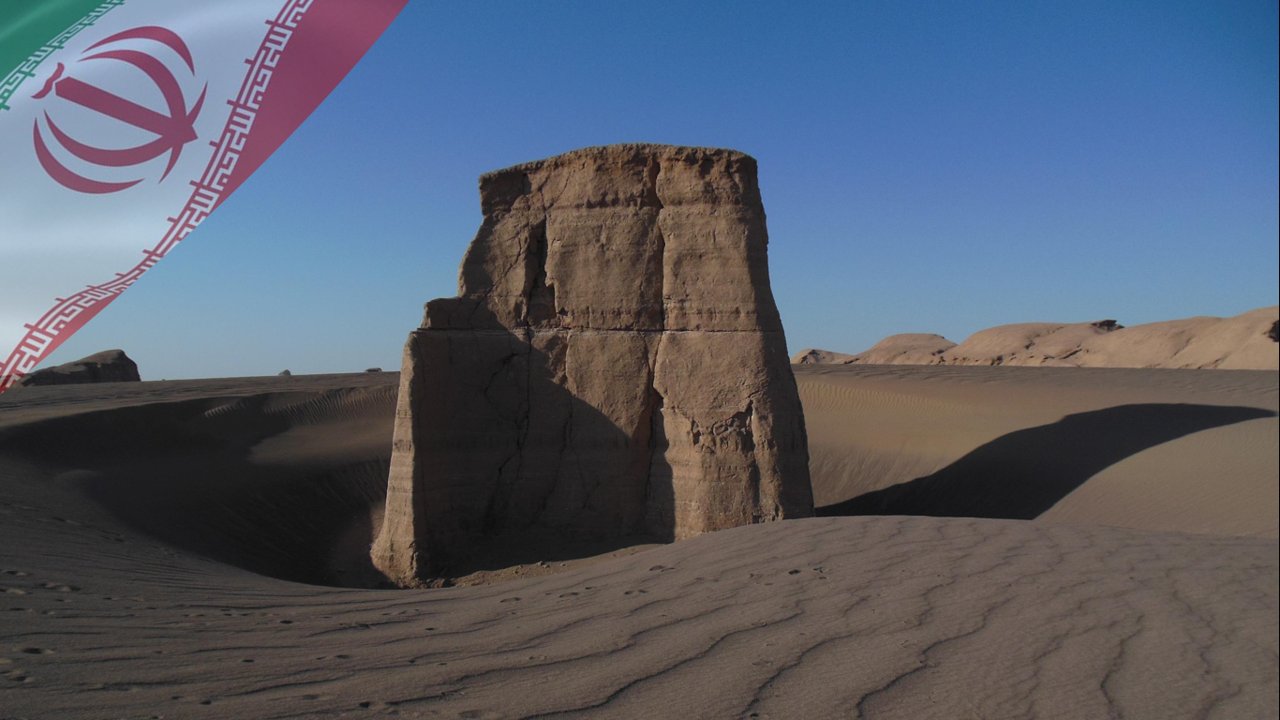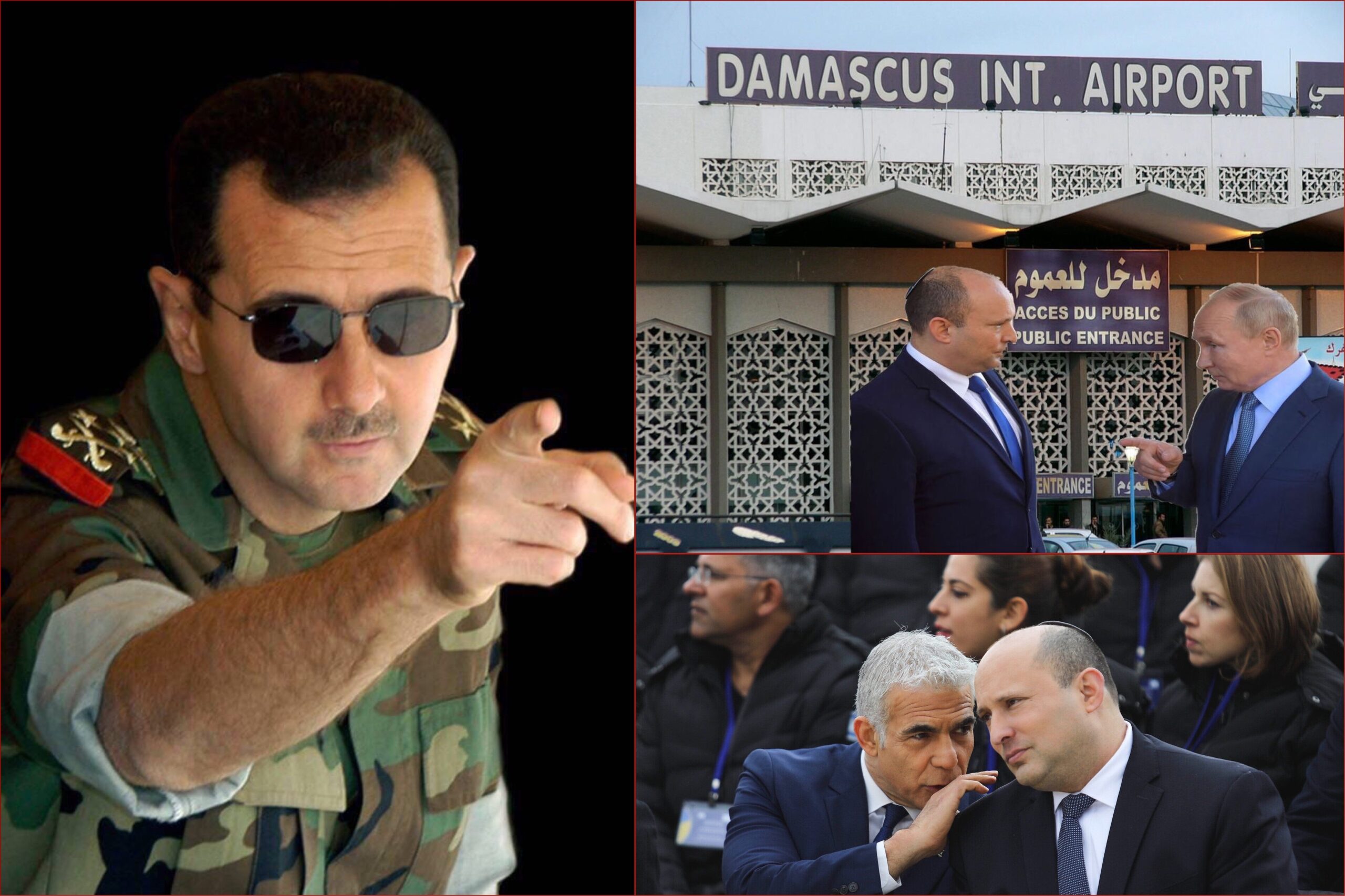On 10 June Israel once again intensified its bombing campaign against Syria and not only bombed the vicinity of the Damascus, but this time disabled the Damascus International Airport, at least temporarily. This not only affected the military airport – in theory somewhat limiting the Syrian Air Force capabilities – but also paralyzed international commerce in the commercial airport. Thus the main lifeline of Syria to the outer world had to be rerouted for some time to the Aleppo.
Thought it was a shock to the Syrian international traffic and surely wanted to be an attempt to increase pressure on Damascus, also trying to drive a wedge once again between Damascus and Moscow for the Russians allegedly failing to give sufficient air cover, it was hardly unexpected after the similarly vicious attack against Latakia port in the beginning of the year. It once again raised fears that Israel is on a war path and a possible grand scale attack against Syria is imminent, while at the same time Damascus is facing similar threats from Turkey.
The matter hardly passed and soon it was reported that Damascus airport will soon return to full operation, when a suspicious article appeared in the London based Saudi newspaper Elaph (Īlāf), which gave new details about this event. It was alleged in the article that a high level Israeli official sent a direct message to Syrian President Baššār al-Asad threatening him that soon a presidential palace will be bombed as well. It was a covered threat, clear in its content, but more curious about its true intention.
Bombing the airport
Israel is continually bombing Syria since the beginning of the war against Damascus in 2011, as well as conducting covert operations behind the lines supporting the militant factions fighting against the Syria state. This support also included periodic skirmishes along the Golan Heights, while the timing of the bombardment alway coincided with major Syrian military operations, so to limit these and give at least some support to the militants.
Tel Aviv reasons these attacks with targeting Iranian positions in Syria, though it regularly targeted Syrian targets, often civilian ones. Despite the attempts of the Syrian air defense, these operations went on practically unopposed until February 2018, when the Syria managed to shoot down at least one Israeli F-16 warplanes. Since then the Israeli planes never dared to intrude into the Syrian airspace, until 2021 when at one time crossed over the illegal American base in Syria at at-Tanaf, carrying out a massive raid in Eastern Syria. Yet it had a such a backslash that the Israelis stopped all entry to Syria carrying out their regular attacks from above Lebanon and the occupied Syrian Golan Heights. The most troublesome was the aforementioned attack against Latakia port this year, which largely ended the Russian-Israeli understanding that Russia would not oppose Israeli attacks against Iranian positions in Syria, but in exchange these attack have to limited and Moscow has to be warned in advance. Sensing the growing dissatisfaction with the given support Moscow increased its areal presence and it was alleged that message was sent that after the next attack other Israeli planes will be shot down.
In result the Israel forces limited their regular attacks to surface-to-surface missile strikes, though largely increased its intensity. In context of this growing struggle came the attack against Damascus International airport, curiously only by surface-to-surface missiles from the occupied Golan, which disabled the airport bombing the two major runways.

The attack was not only a shock, but also disabled international areal commerce at Damascus, as all planes had to be rerouted to the Aleppo airport. The attack clearly crossed a line in the struggle, which invoked huge wide ranged condemnation, including from Russia.
Since the massive Israeli raid in Eastern Syria we supposed that the Israeli leadership is aware of some sort of delivery from Iran to Syria, mostly likely developed military equipment, which it desperately wanted to prevent from arriving. Despite all attempts this project was failing, and that caused the attack against Latakia port. Despite the damage to this vital point and the complications for Syrian trade, it failed to yield the desired effect and the attacks continued. Yet recently even the Israeli assessments admitted that this struggle has been lost and Iran managed to form stabile positions in Syria.
It is likely that this changing balance and the Israeli superiority gradually diminishing promoted the Israeli leadership to increase its covert operations within Iran and carry out targeted assassinations. Also this led to the attack against the Damascus airport, as last resort message that the Syrian leadership must cease to import Iranian equipment and gearing up for a possible war. This message was widely publicized by the Israeli press, while Tel Aviv once again refrained to comment the attack in detail.
The attack, however, is a curious attempt nonetheless. First of all, given its significance and the support it grants to Damascus it is not an operation easy to be repeated. Not only Damascus, but Moscow and Tehran as well will surely count on this possible in the future, and also plan not only how to defeat it, but also how to prevent it recurring. If that was to block the Iranian flights arriving to Damascus, it is not clearly not a serious attempt, not much more than a delay in such deliveries. Such transports can be carried out via Aleppo, but also by sea, and the Damascus airport is soon to be repaired. And it has been reported that indeed Damascus International Airport will return to full operation from 22 June on. If the attack aimed to hit the Syrian Air Force, it is also an unlikely explanation, as around Damascus there are a number of military airports, and the missile striking capabilities, which have already proven their worth against the Israeli defenses, are not concentrated at the Damascus airport. So in conclusion, more then anything, it wanted to be a message. A message of intimidation to Syria, but also a message of reassurance to the Israeli leadership, which has huge problems in the last few months in the internal front.
The messaging continues
The dust hardly settled after this vicious attack against such an important civilian target, when on 13 June an article appeared in the London based Saudi owned Elaph site, which alleged that an Israeli high level official sent a message to Syrian President Baššār al-Asad, warning him that if he continues to import sophisticated Iranian armaments and allows the Iranian army to fetch up positions in Syria than the next Israeli target will be a presidential palace. Either in Damascus, Latakia, or at some other part of the country.
Given the circumstances it is clear that this article was part of the same project to intimidate the Syrian leadership and hold on to the image of Israeli air superiority. Which is falling back, despite the regular attacks. Yet these attacks are less “casual” as before, and by now carried out almost exclusively by surface-to-surface missiles, not risking the chance of another Israeli warplane being shot down. Which after the attack against the Damascus airport will be much more justifiable.
The Elaph website is a Saudi – by some sources Emirati – affiliated outlet, which the Times of Israel website claims to be a regular channel to deliver the Tel Aviv’s warnings to the Arab world. Thus giving the appearance that there is a possible Saudi complicity in this threat. And according to the “official” reasoning, the attack and the message came after the Syrian President’s latest visit to Tehran, about which little is known officially, but claimed to have discussed the military cooperation between the two allies.
Regardless of how much that is true, this is once again a curious message, which only caused very limited uproar in Syria. At this stage Syria can hardly refuse help by any of its allies. Even if Damascus was to take this threat seriously, or to be truly intimidated by it, at this stage it cannot oust the Iranian presence from the country. It is not in its interest, nor its desire, nor it is within its capabilities. Also, bombing down a presidential palace would probably be humiliating, but would have little impact on the Syrian leadership, and would only rally more support for Damascus on the international level at a time, when Damascus is regaining its international position. After the meetings in the Emirates, and the continuous signals from all around to the Arab world that Syria should return to all Arab forums Syria is far less isolated than even a year ago. And after such attack Moscow would have little other choice but to hit back at some level, but in a very meaningful way. Which is not unlikely now, as Tel Aviv increased its military deliveries to Ukraine, which was uncovered.
And what shows how void is this threat is that fact that it’s not even a new one. The first time it came out was in late August 2017. With the exact same message. A few months later the first Israeli plane was shot down and Tel Aviv suffered its first major setback. Which leaves the question: If Tel Aviv fully knows that it cannot prevent Iran taking a foothold in Syria, loses its bargaining position with Russia and has already failed to prevent sophisticated Iranian armaments reaching Syria and Lebanon, what is this threat used for? What is the goal here?
It is about gas and money
It was less publicized, but recently Israel in full disregard of the ongoing American mediated international talks about finalizing the maritime borders between Lebanon and itself started a drilling operation for natural gas in the vicinity of the Lebanese coast. Tel Aviv claims that these waters are part of its exclusive maritime economic area, therefore its drilling is legal. Yet this is a clear violation of international norms, as these are not only disputed waters, but there are negotiations about it determining its fate and Lebanon clearly considers this are within its own maritime territory. The matter created unity in Lebanon refusing to accept the situation, and Lebanese President ‘Awn warned against Israeli threats.
The situation is precarious, as it became the matter of national sovereignty for most Lebanese, and a matter of serious political debate within the country how to oppose it. As expected, it take almost no time for Ḥizb Allah to capitalize on the matter and threaten to retaliate, in case Tel Aviv does not step back from extracting this gas field in the border zone.
Of course at a time when energy price in the global markets are spiking this is a lucrative deal for Tel Aviv, which is otherwise relatively short on such precious resources. But is this temptation big enough to risk a war, about which’s outcome it cannot be sure? There are bigger matters at hand.
Amidst the skyrocketing energy prices one of the biggest matters globally in not how to suffocate Russia, but how Europe will survive getting rid of the Russian oil and gas. That is a key matter not only for European leaders, but also for Washington pushing for more sanctions against Russia. Yet this aim cannot be achieved until sufficient substitutes are found and secured. Of course the US promised increased liquified gas supplies, but these are not only expensive, but also insufficient in quantity for the European needs. This has already led to turbulent diplomatic activity by the Europeans and the Americans to convince the Arab states, especially in the Gulf to increase their supplies. A thing they so far not willing to do, despite all the promises and occasional optimism. There has been partial deals, but the real solution in not yet at sight.
It was even less publicized in the international press, but on 15 June Israel, Egypt and the EU singed a framework agreement to export – mostly – Egyptian natural gas via a pipeline to Europe. It should be noted that this is not something new, or out of the blue, as the pipeline has been under construction for years and it is now ready at least to Cyprus. From there it is not a stretch to extend it to Egypt. There are only two questions. Where to connect it, and which states can participate? There have been speculations that if this pipeline could connect in Lebanon, other states, like Qatar, but possibly even Iran in the long run could join. Syria could also by a viable solution, given the pipeline from Egypt via Jordan to Syria is ready, but given the political and security complications this is an unlikely solution. Israel is next possible solution, however, this excludes the possibility of Iranian and Qatari participation.
So it seems that the answer is finally here. Israel can be the conduit to deliver Egyptian gas supplies and in massive quantities to Europe, finally solving the current problem. If Tel Aviv could, however, exploit the situation to extract gas on its own and include this output into the delivery mechanism it could be a huge gain. A gain the currently very fragile Israeli ruling coalition desperately needs.
Yet this venture, even the pipeline on its own, has the potential to ignite a regional war. At this stage Europe can hardly take sides. So the matter is deeply tided to the attempts to intimidate all forces that might join in case a war truly breaks out. Whether Syria would support Lebanon is such a hypothetical war is questionable, but much less whether Iran would do so via its presence and allies in both Syria and Lebanon.
That is what this bargaining and covert messaging is mostly about. Money, influence, and about controlling a very lucrative economic lifeline.
But it is also about politics
The current Israeli coalition government is one of the most fragile in the last three decades, lacking such a leading character as Netanyahu is. By now this unlikely coalition is practically doomed, but still clings on to power.
And right at that time, when two major events are happening concurrently with the Egypt-Israel-EU pipeline deal. The allegedly warming ties behind the scenes between Tel Aviv and Riyadh, and Biden’s upcoming visit to the region, involving only two states. Israel and Saudi Arabia. Tel Aviv wants to use this opportunity utilize American help reviving the normalization process, at least with Riyadh, which somewhat broke down since Trump left office. Israeli Foreign Minister Yair Lapid has already expressed that this visit can have a symbolic effect on the Israeli-Saudi ties, but even he could not hide that breakthrough is not about to happen.
The current Israeli government struggles to continue the same excellent ties Netanyahu had with Trump, and also to effectively block its approach on reviving the Iranian nuclear deal. The prospects are not excellent for Tel Aviv now. In such circumstances it is crucial to take a firm grasp on this vital economic lifeline for Europe as a bargaining chip not only with the Europeans, but also with the US. And at a time when the government is in desperate need of success, while Syria is tied down with a possible Turkish offensive, and Russia with neutralizing this prospect and tied down in Ukraine, this time is as good as any to take a move. Even a desperate one.


